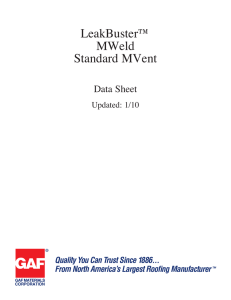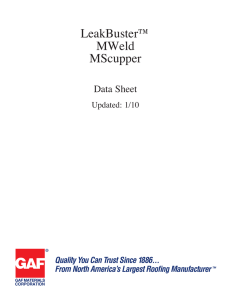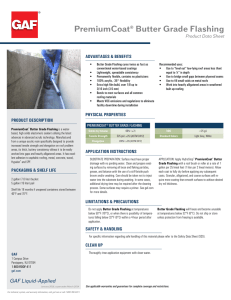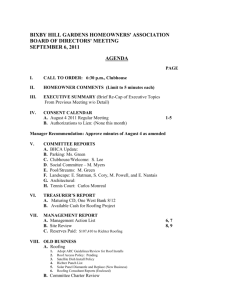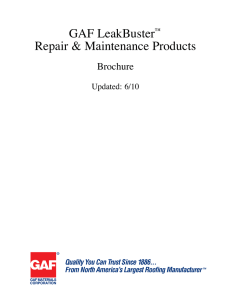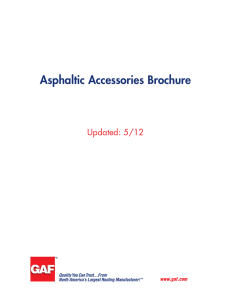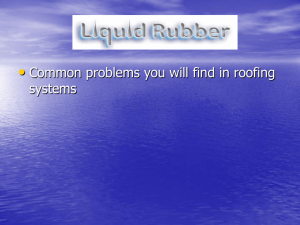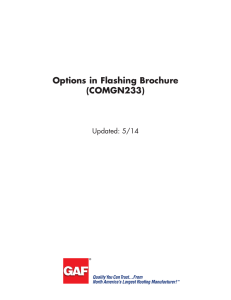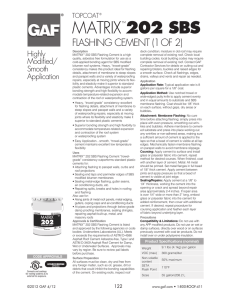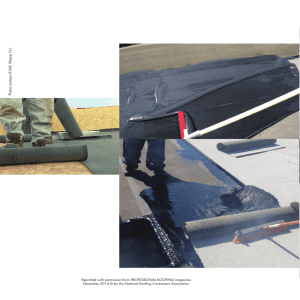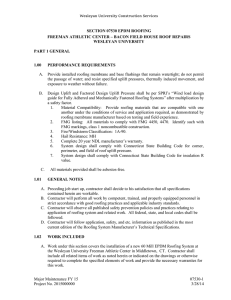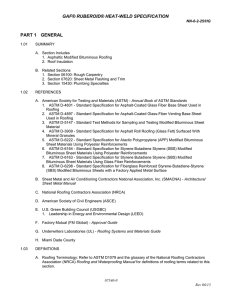LeakBuster™ MWeld One Way MVent Data Sheet
advertisement
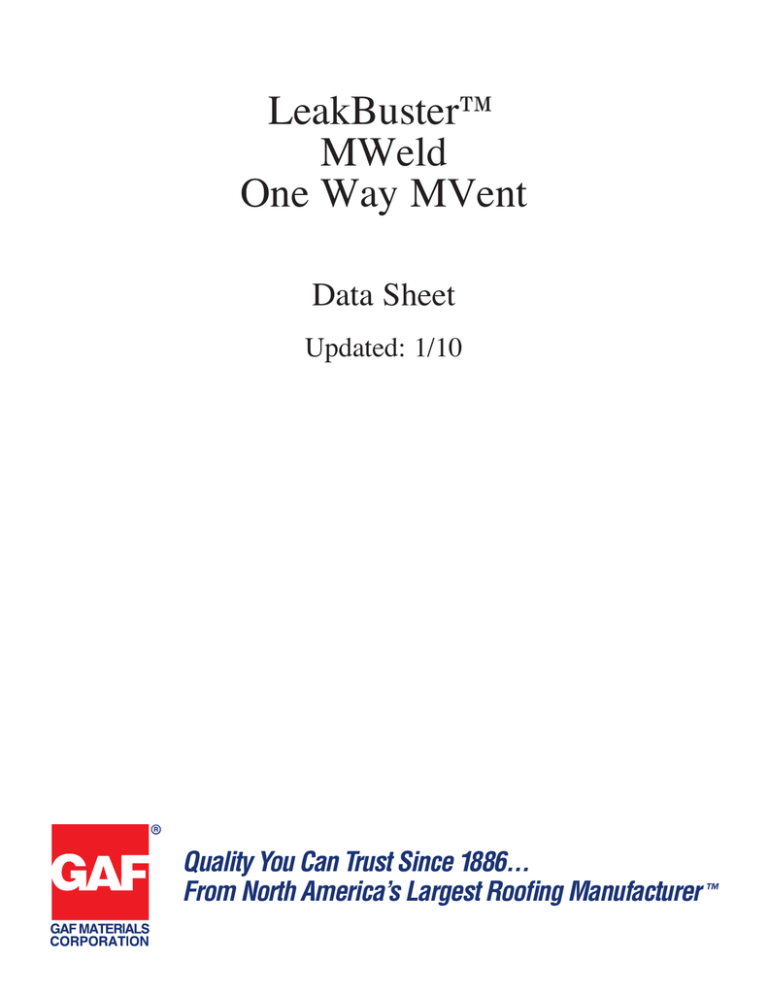
LeakBuster™ MWeld One Way MVent Data Sheet Updated: 1/10 Quality You Can Trust Since 1886... From North America’s Largest Roofing Manufactur Quality You Can Trust Since 1886... From North America’s Largest Roofing Manufacturer ™ LEAKBUSTER™ MWELD ONE WAY MVENT (1 OF 2) Description The One Way MVent is a moisture relief device consisting of a one-piece spun aluminum vent, pre-flashed with a modified bitumen membrane. Internally, the One Way MVent contains a neoprene valve that allows moisture vapor to escape out of the roof deck system without allowing moisture to enter through the valve. • One Way MVents are 4” (100 mm) in diameter. • One Way MVents are flashed with either APP or SBS modified bitumen membranes, smooth or colored granule surfaces, to accommodate most built-up and modified bitumen roofing projects. Unflashed vents are also available. • Packaging: 5 flashed or 50 unflashed per box. Uses • The One Way MVents are most commonly used in re-roofing applications. Blisters caused by internal moisture in “old” roofing systems may be prevented or reduced by using One Way MVents. • One Way MVents allow for continual release of vapor from within the system, while maintaining the watertight integrity from the outside. Uses (Continued) • These MVents are typically used at the rate of one vent per 1,000 square feet of roof surface, or as specified by the roofing material manufacturer or system specifier. Note: Not for use over roof protrusions. Advantages • Spun aluminum design eliminates seams and soldered joints. • Application is quick and easy, saving labor costs. • Allows crew to complete detail work as job progresses. • Available with pre-flashed modified bitumen membranes ready for installation with built-up, torch, and SBS hot asphalt and cold adhesive applications. • Factory flashed MVents promote quality by eliminating call backs and leaving neat, uniform flashing details. Technical Data Vent Material Available: • 0.064 Spun Aluminum Base • 0.050 Spun Aluminum Base Flashing Material Available: • APP Smooth • APP Granulated • SBS Smooth • SBS Granulated Leakbuster™ Mweld One Way MVent ©2009 GAF Materials Corporation 01/10 85 www.gaf.com • 1-800-ROOF-411 LEAKBUSTER™ MWELD ONE WAY MVENT (2 OF 2) Installation: 1. Install insulation, base sheet and field membrane according to manufacturer’s specifications. 2. Mark locations to be vented per specification. At these locations, cut a 4” (100 mm) diameter hole through the finished field membrane and base sheet to the substrate to be vented. 3. Choose appropriate One Way MVent material (APP flashing membrane when using heat welded membranes, SBS when using hot mop or cold adhesive applied membranes). 4a. For APP smooth installation: • Heat the field sheet around the 4” (100 mm) hole until the flashing membrane develops a glossy sheen. For APP granulated installation: • Heat the surface around the 4” (100 mm) hole until the granules start to sink into the molten compound. • Next, heat the bottom of the flashing membrane attached to the One Way MVent until it has a similar sheen. • Place the surfaces together, centering the One Way MVent over the hole. • While torching, work the flashing membrane with a trowel until a 1/4” (6 mm) to 3/8” (9 mm) bleedout occurs around the outside of the flashing. 4b. For SBS Installation: • Spread hot asphalt or a SBS adhesive over the field membrane around the hole. • The One Way MVent is placed over the hole and seated in the asphalt or cold adhesive. • The flashing should then be troweled for a bleedout, the same as with APP applications. 5. On granule surfaces, a uniform appearance can be achieved by a) sprinkling the appropriate colored granules into the bleedout around the One Way MVent flashing, b) on coated with TOPCOAT® SeamCote™. 6. On smooth surfaces, secure seams, and cover bleed out by using TOPCOAT® color blended SeamCote™ around the One Way MVent flashing. Note: Sufficient roof drainage is essential for good roof performance and to avoid overloading the roof under heavy rainfall conditions. Ensuring that the size and number of drains is adequate for the roof area and location is the responsibility of the building owner or their roofing consultant. ©2009 GAF Materials Corporation 01/10 86 www.gaf.com • 1-800-ROOF-411
